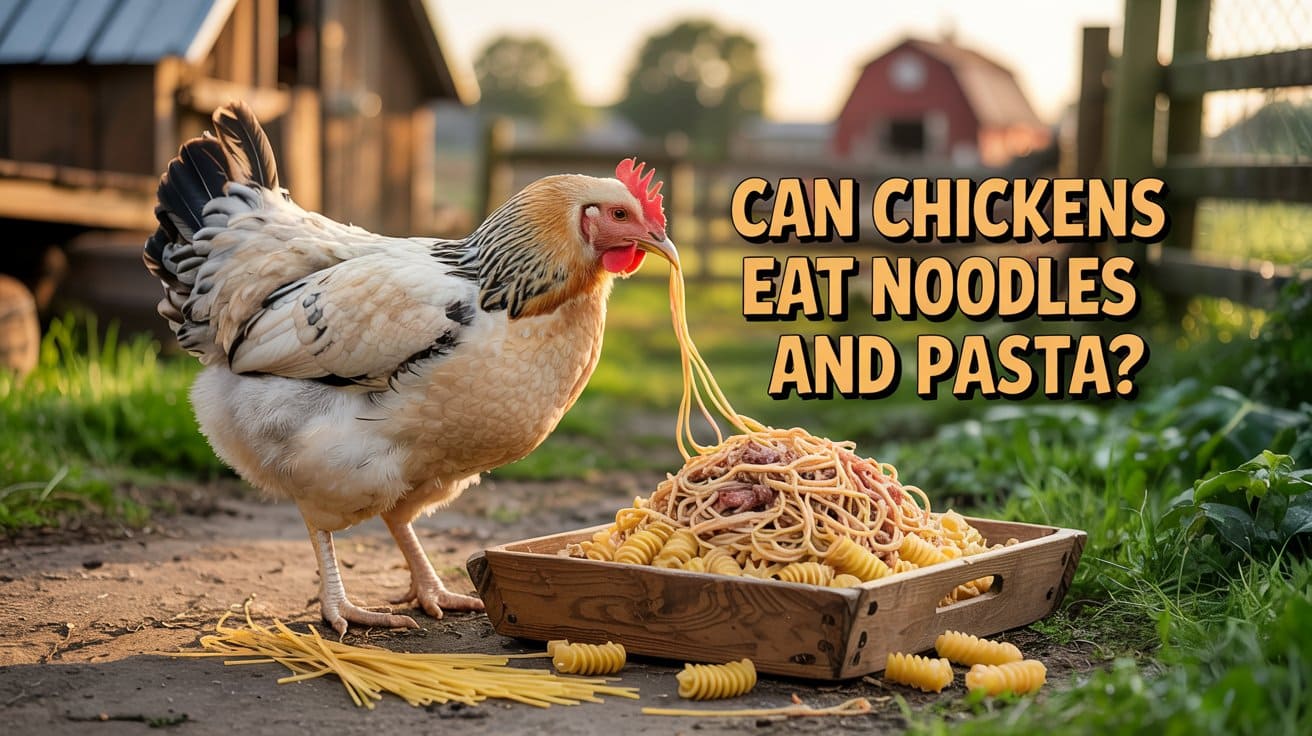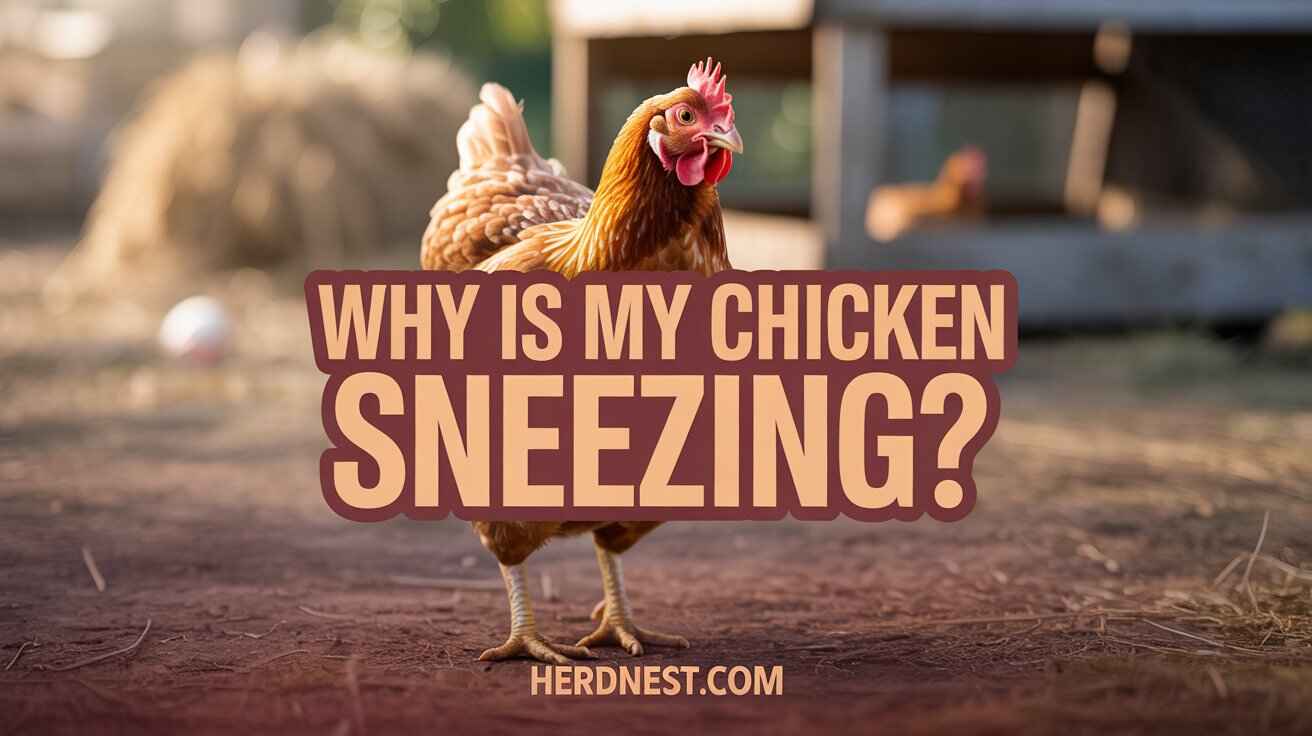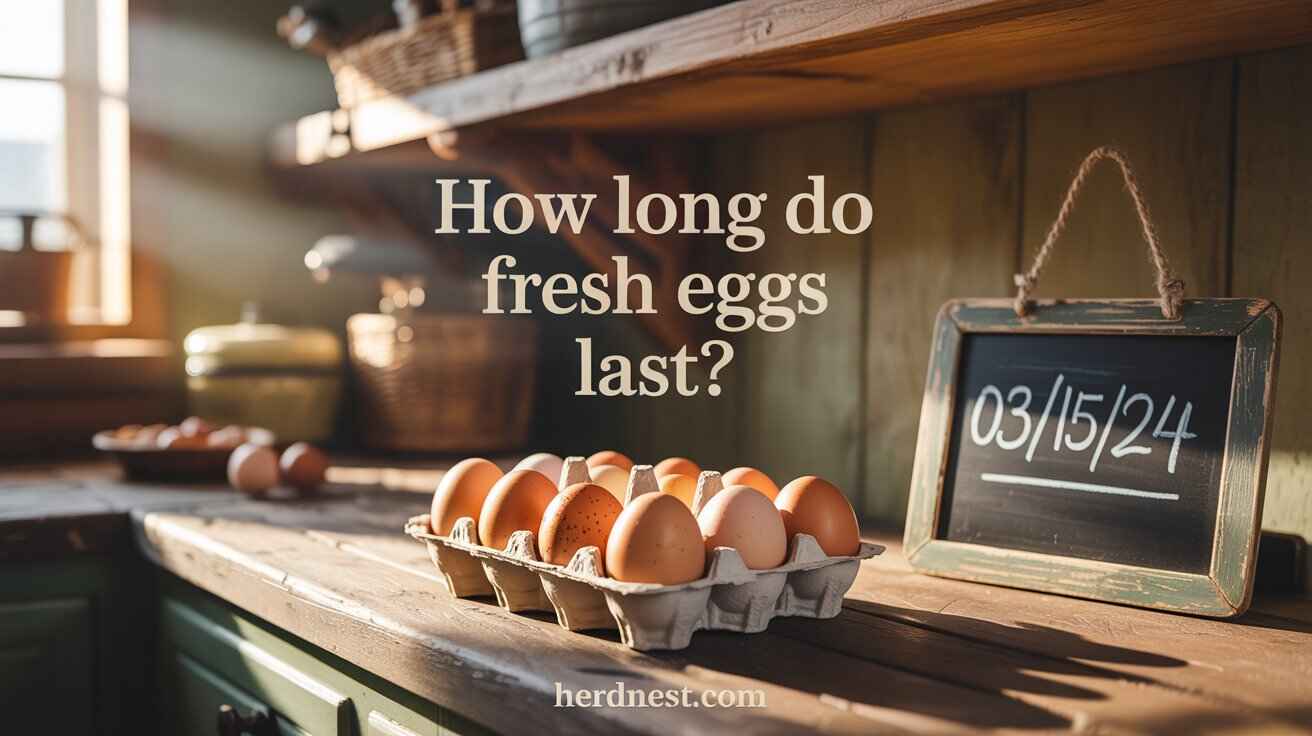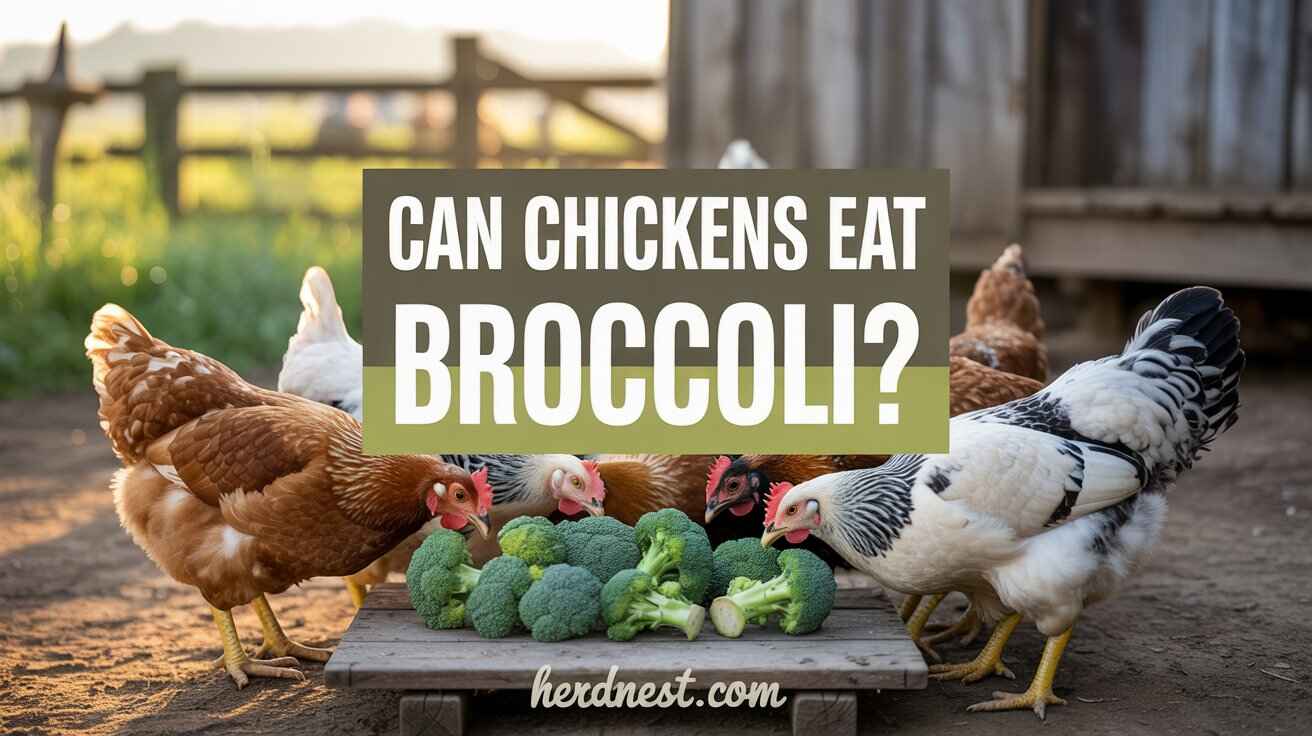When it comes to treating your chickens, you might wonder if your favorite pasta or even seasoned noodles can be part of their chicken diet. Many poultry keepers like to feed scraps to their flocks, but it’s important to determine whether these treats are truly safe.
While noodles can be a delightful snack, avoiding overly seasoned noodles or ramen is crucial since the additives may harm your birds.
From personal experience, I’ve seen my chickens gorging on plain scrap pasta happily, but I always ensure I don’t toss anything with heavy seasoning.
This article aims to discuss and provide an answer to these common questions and help you find clarity while avoiding unnecessary concerns about throwing scraps to your feathered friends.
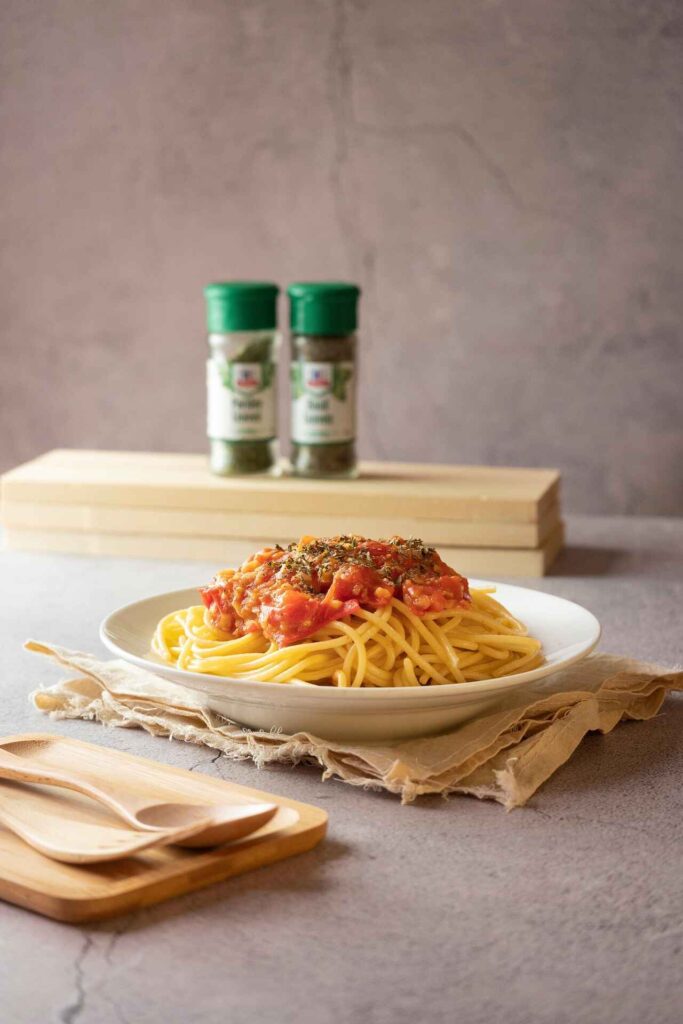
Table of Contents
ToggleCan Chickens Eat Noodles?
Chickens can enjoy noodles as a treat, but they should never make up a significant part of their diet. A balanced and varied diet is essential, including grains, seeds, fruits, vegetables, and protein to keep them healthy and happy.
From my experience, offering a variety of foods and monitoring their intake helps maintain proper nutrition. If you’re wondering what kinds of noodles are safe for your flock, we’ll explore their consumption in more detail below.
Can Chickens Eat Spaghetti Noodles?
Yes, chickens can eat spaghetti, one of the most common pasta dishes, as long as it’s served in its natural state without any sauce or added ingredients.
While your flocks will enjoy pecking at the long strands, you should only offer it in moderation to avoid upsetting their nutrition. Be cautious, as choking risks and potential digestive issues can arise from the texture and length of the noodles.
Additionally, feeding spaghetti can turn chaotic, as chickens might get aggressive and compete for each bite, leading to unnecessary stress in the group.
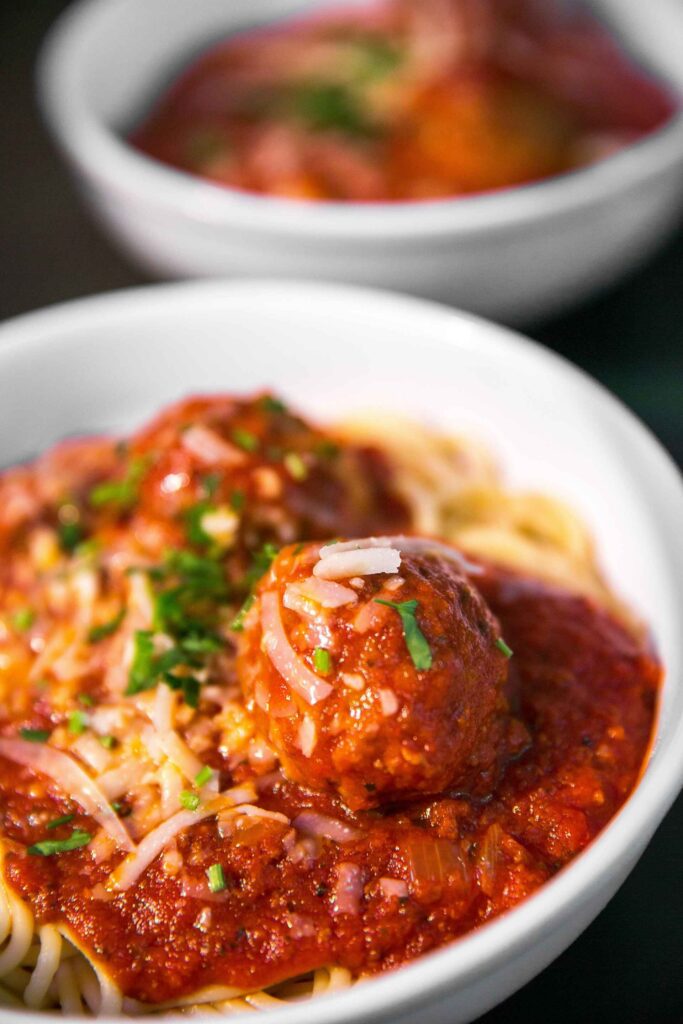
Can Chickens Eat Spaghetti Sauce?
It’s okay if poultry birds take a small peck of spaghetti sauce, but you must ensure it doesn’t contain any hazardous substances or preservatives. Many sauces are loaded with high sugar and salt content, which can be harmful to chicken health.
From personal experience, I avoid giving my birds anything with additives and prefer keeping their treats plain. If your flock gets a taste of spag, you might also wonder if they can handle ramen noodles—but the same caution applies to these processed foods.
Can Chickens Eat Ramen Noodles?
Yes, Ramen noodles are safe for chickens, just like spaghetti pasta or other types of noodles, but they should be given plain and without seasoned sauce.
These noodles are high in carbohydrates, which can benefit poultry birds when served in moderation. Avoid tossing scrap ramen noodles dripping with flavorings or additives, as they can harm your flock. From my experience, serving them plain keeps your birds happy while ensuring their health.
If you’re wondering about the exact reason, it’s to protect them from the effects of excess salt and spices.
Can Chickens Eat Seasoned Noodles?
Though pasta and noodles are generally safe for your flocks, avoid giving them Ramen noodles with seasonings. These are often highly processed, containing sodium and preservatives that can have harmful effects on their health.
To keep your feathered friends healthy and productive, serve noodles plain and free of flavors to prevent adverse health effects. Based on my experience, offering them natural, unprocessed foods ensures their digestive system stays in good shape.
Can Chicks Eat Pasta or Noodles?
Yes, chicks can enjoy chicken pasta or noodles, but they should only have small portions as part of a balanced diet.
It’s important to ensure the pasta is plain, cooked, and cooled pasta without any flavored additions like spices or sauces, which could cause harm.
For healthy growth, include starter chicken feed and other nutritious foods in their meals. Also, always provide access to clean water to keep them hydrated and safe.
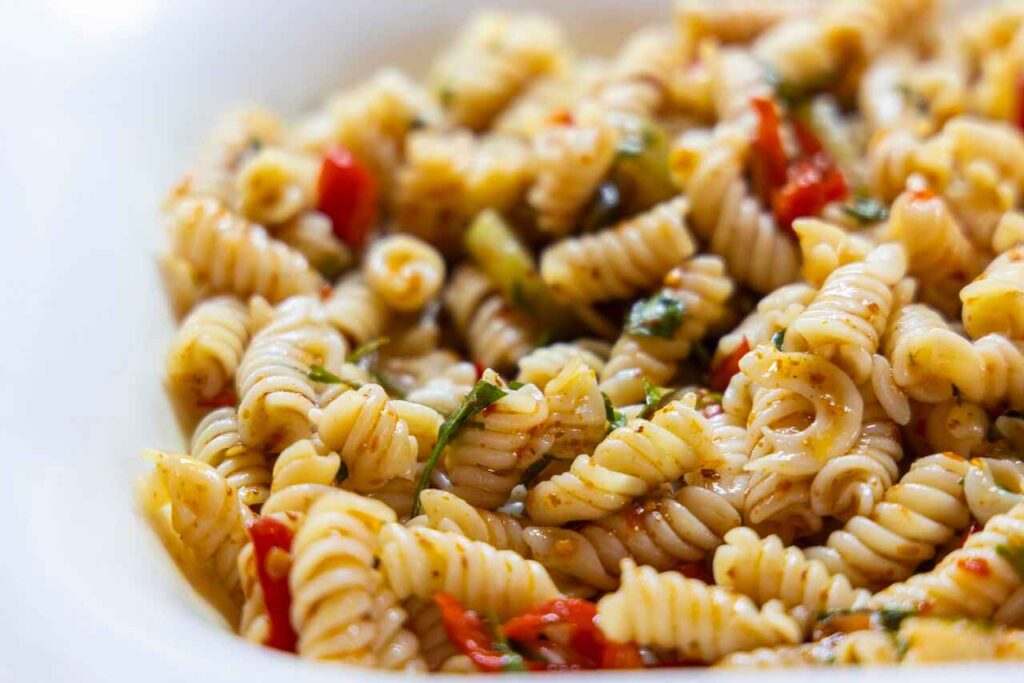
Can Chickens Eat Pasta?
Yes, chickens can enjoy pasta as a special chicken treat, but it’s important to offer it in tiny amounts. While pasta and noodles provide some nutrients like fiber, iron, and carbs, they are primarily high in carbohydrates and have low protein content—less than 5%.
Since hens and other poultry need food with at least 16% protein for proper growing and developing, relying on pasta isn’t the healthiest option. To ensure your flock gets the necessary nutrients, it’s best to keep feeding pasta as an occasional snack rather than a regular meal.
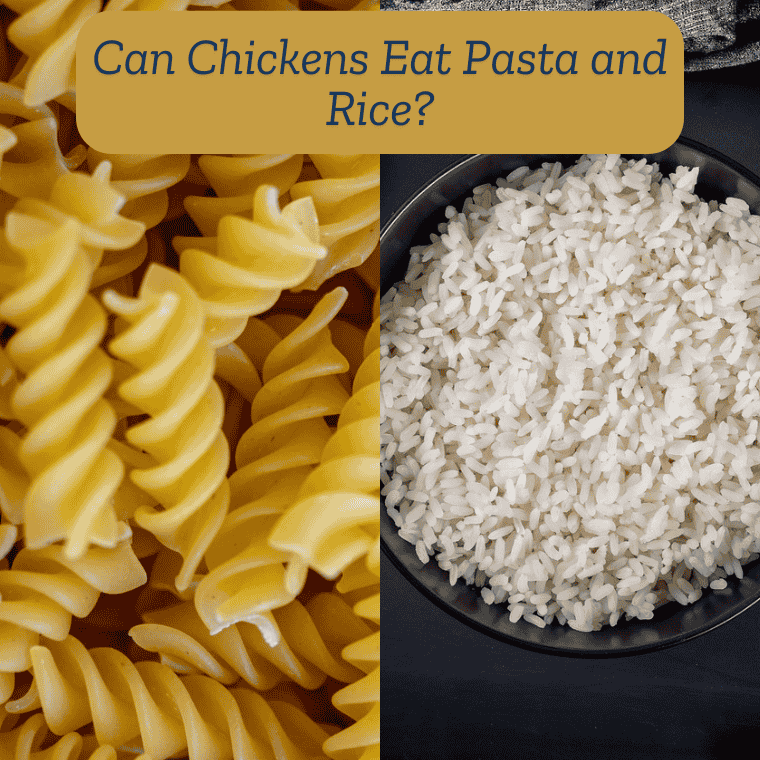
Can Chickens Eat Pasta and Rice?
Rice and pasta are excellent sources of carbohydrates that help keep chickens active and energetic, but they should only be fed in moderation.
Like any other food, excessive intake can be harmful, and they lack the complete nutrients necessary for a balanced diet. To ensure your flock stays healthy, these foods should make up no more than 10% of their overall diet.
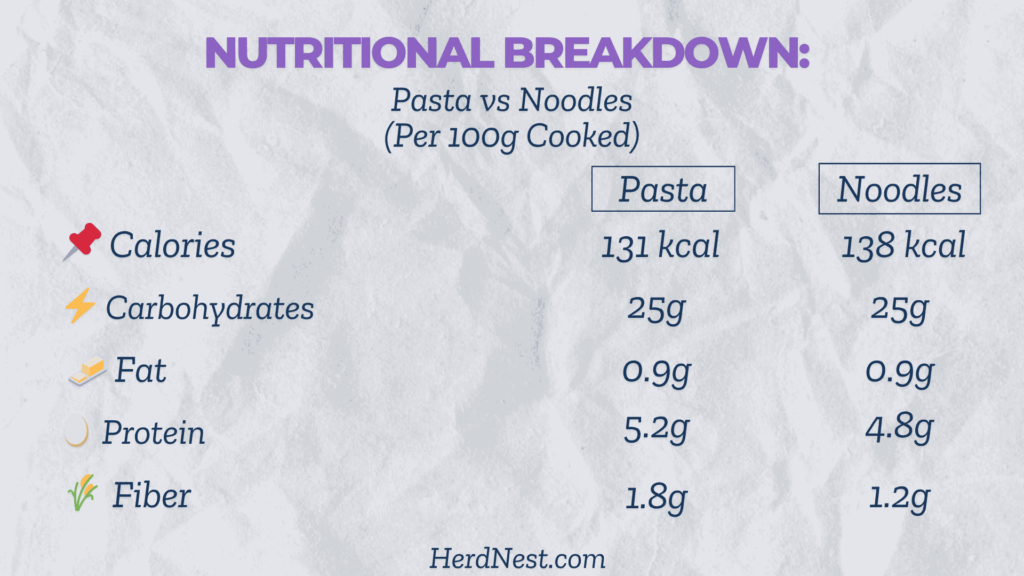
Nutritional Benefits of Eating Pasta
Noodles like pasta and ramen aren’t just a delicious treat for your feathered friends; they also offer potential health benefits for their healthy growth. While feeding them in moderation is key, these foods can provide certain nutritional benefits. Before diving into the risks, let’s uncover the specific benefits they can bring to your birds.
Benefits of Eating Noodles for Chickens
Your chooks can benefit from a bowl of well-cooked pasta or noodles as it contains protein, an essential nutrient that supports the overall growth of flocks and laying hens. Feeding foods rich in protein helps maintain muscles, bones, skin, blood cells, and even fights free radicals by producing antibodies.
Additionally, noodles contribute to digestion due to their dietary fiber; 100 grams of noodles can have 1.2 grams of fiber content, which aids in bowel movement and prevents constipation.
As a bonus, noodles provide carbohydrates, offering energy to keep chickens active during a day of foraging. While noodles make a great treat, be mindful of potential risks when adding them to their diet.
What Happens When a Chicken Overeats Noodles or Pasta
You can serve pasta to your chicken either raw or cooked, but moderation is key to avoid potential risks. The best approach ensures they benefit from the nutrients while preventing issues that arise when a chicken overeats noodles or pasta.
Cooked Pasta
When offering cooked pasta to your chickens, it’s important to keep portions small and serve it as an occasional treat rather than a replacement for their regular balanced diet.
While cooked pasta is rich in carbohydrates, it lacks essential nutrients like protein, vitamins, and minerals that are crucial for their health. Overfeeding can result in a nutrient imbalance, so ensure it’s served plain without sauces, spices, or seasonings, particularly those high in sodium or fat content.
For optimal health, complement their diet with grains, greens, insects, worms, commercially available feed, and fresh, clean freshwater, ensuring they get all the nutrients they need.
Raw Pasta
While chickens can technically eat raw pasta, it’s not ideal due to potential digestive issues. Uncooked pasta is tough for them to digest and may expand in their stomachs, causing blockages or discomfort.
Additionally, raw pasta lacks nutritional value, as it’s merely uncooked flour and doesn’t contribute to a balanced diet. Chickens thrive on a diet rich in nutrients to maintain their health and produce eggs, making alternatives like cooked pasta a safer choice.
The Risks of Feeding Noodles to Chickens
Feeding noodles to chickens poses several risks, mainly due to their high carbohydrate and low protein content, which can cause imbalances in their diet.
Over-consumption may lead to health problems like fatty liver disease or disrupt their digestive system, affecting the gut flora and causing digestive issues such as diarrhea.
Additionally, the salt content in many noodle dishes introduces excess sodium, which chickens cannot process efficiently. Long strands of noodles may also get stuck in their digestive tracts, causing blockages and even fatal complications.
To avoid these problems, it’s best to stick to a balanced diet of chicken feed and introduce any new food gradually to monitor for adverse reactions.
What If You Gave Leftover Cooked Pasta to Chicken?
Feeding leftover pasta or noodles to your feathered friends can be risky, especially if it has been stored in the refrigerator or reheated for many days. This increases the chance of the food becoming contaminated with bacteria like Salmonella, which is harmful to the health of your chickens.
How to Give Pasta to Chickens
You can simply cook your favorite pasta and place your bird’s share on the chicken feeder to prevent it from getting dirty. It’s a quick and easy process. If you like, you can also serve the pasta with fruits that are safe and healthy for your poultry birds, such as strawberries, melons, or berries.
How Often to Feed Pasta to Chickens
While pasta and noodles are safe for chickens, they should only be given in moderation to avoid overfeeding, which can harm their health. You can feed them occasionally, ensuring it makes up no more than 10% of their total intake per serving, with the remaining 90% coming from high-quality feed.
Adding noodles or pasta to their diet just twice a month is sufficient. Beyond pasta, you might also explore other kitchen staples for your poultry birds.
Final Recap
Yes, chickens can enjoy noodles like pasta and ramen, but always in moderation and without any seasonings. Ensure the amount makes up no more than 10% of their diet to minimize risks.
A balanced diet of chicken feed is the best way to provide your birds with the nutrients they need. Have you tried feeding noodles to your chickens? Did they enjoy it, or did you notice any adverse health effects?
